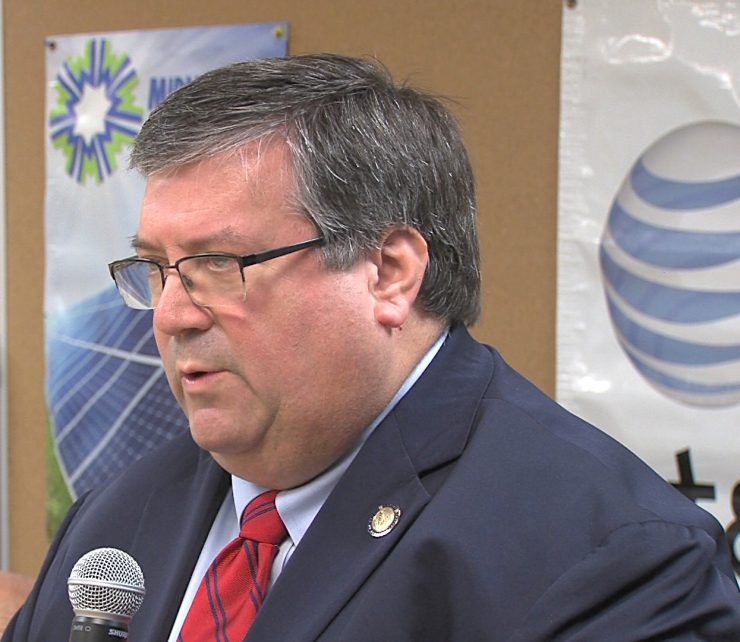
By BECKY KISER
Hays Post
Kansas Gov. Laura Kelly, a Democrat, signed a school finance bill into law Saturday afternoon after it was passed by the state legislature Thursday evening. The bill increases spending on public schools by roughly $90 million.
Saturday morning in Hays, four area state legislators, all Republicans, all agreed there is “just not enough of the pie” to go around. Rep. Ken Rahjes (R-Agra), chairman of the Higher Education Budget Committee, said the “state is being held hostage by K-12 funding.”
“We have all these programs that need funded. We have all these folks that need. And simply raising taxes is not going to solve the problem. We fed that beast and it continues to grow,” Rahjes said.

Rahjes reluctantly voted in favor of the school finance bill. Hays Representative Barbara Wasinger voted against it.
She said she was looking for accountability in the bill, with more funding going into classrooms and for teacher salary increases.
“Did you see the new activity buses that Great Bend did? Paid a quarter of a million dollars for each one of them,” Wasinger said. “Russell used money that they got to build an AstroTurf football field. Last year, Shawnee raised their administrators’ salaries 13%. I have nothing against administrators, but why wasn’t that spent for teachers?
“Good teachers are leaving us because they’re not being paid enough. Let’s start giving them some money.
“I would have voted for the House bill even though it was still a lot of money. It put in accountability measures and put kids and teachers first, finally. It was voted down, and so I voted against the Senate bill that came over.”
Wasinger contends her vote was “not a vote against education.”
Most Senate Republicans lined up behind Kelly’s plan last month after the four school districts suing the state – Wichita, Hutchinson, Dodge City and Kansas City – initially supported it, then withdrew their endorsement and called for higher spending after the 2019-20 school year.
According to Sen. Rick Billinger (R-Goodland), those school districts now want nearly $900 million over the next four years.
“Our (total state) budget is at $7.7 billion and a little over $4 billion is K-12 funding,” Billinger said, “and I support K-12 and I voted for the $92 million. I had an explanation for my vote – we’re being held hostage.”
Western Kansas schools are not the problem, according to Rahjes, especially the small rural districts.
“Most of our administrators could be a substitute teacher one day and cook the meals. They’re the athletic director. They drive the bus, all for a lot less money than some of the bigger districts in the eastern part of the state.
“I believe school board members in this part of the world are very judicious with their money and they want to make wise investments.”
Now that the school finance package is passed, it will be defended in front of the Kansas Supreme Court.
Rahjes expects the court to rule it’s not enough money.
Then, he predicts, “you will see a constitutional amendment try to get into your hands the next election to take the Supreme Court out of the appropriations process.”
“I believe that folks are fed up.”
The Republican-controlled Legislature adjourned Friday for its annual spring break and will reconvene May 1 to work on the budget.

First District Congressman Roger Marshall (R-Great Bend) attended an early portion of the forum presented by the Hays Area Chamber of Commerce.
Marshall talked about the two issues he said are on the minds of Kansans and its biggest challenges – a lack of employees and the cost of health care.
